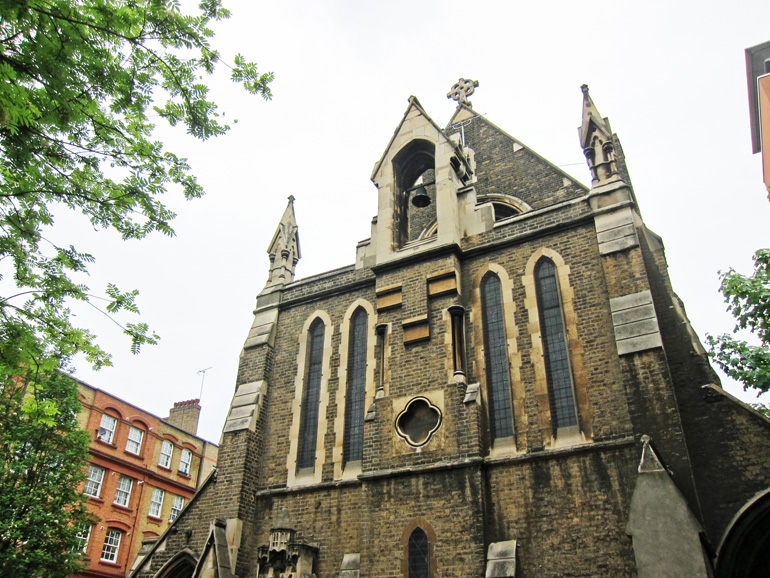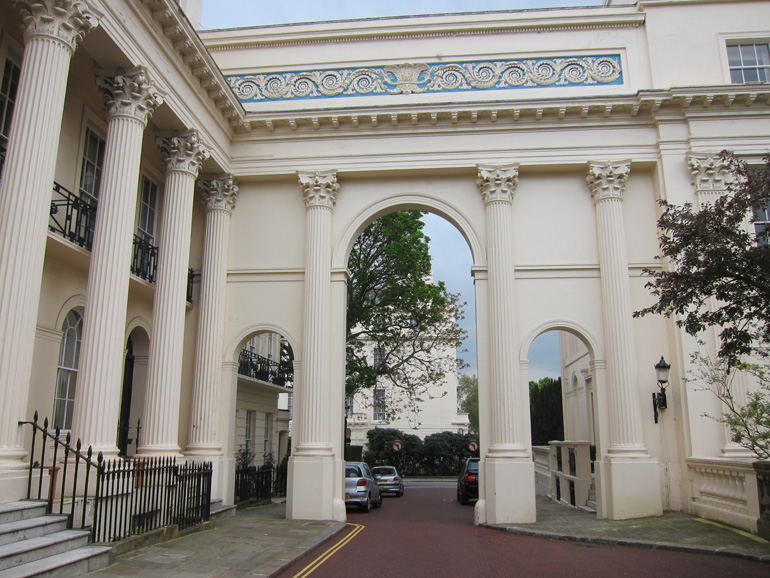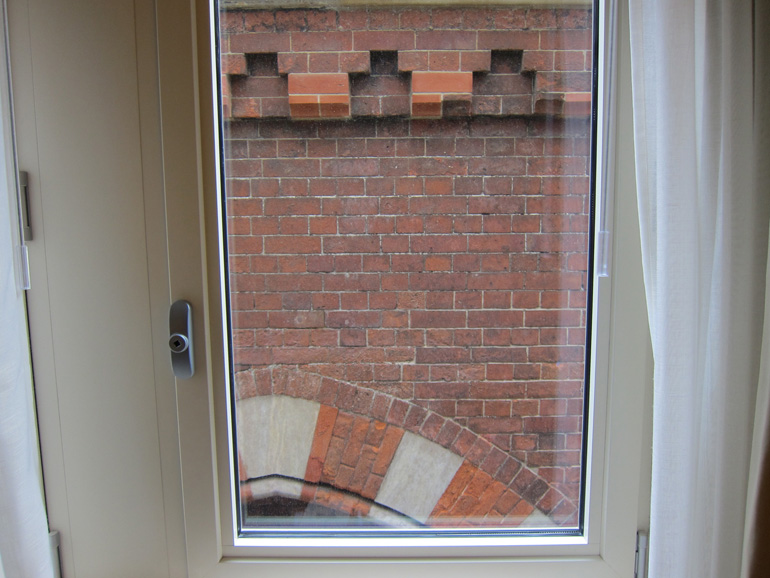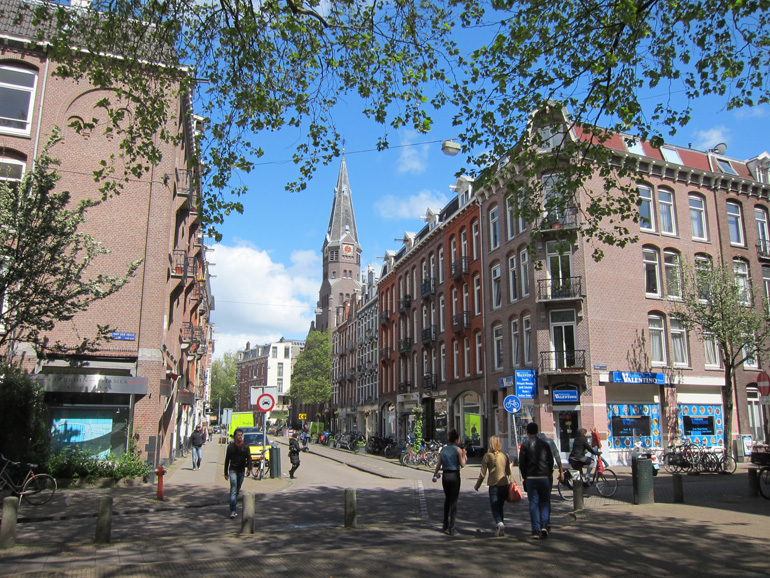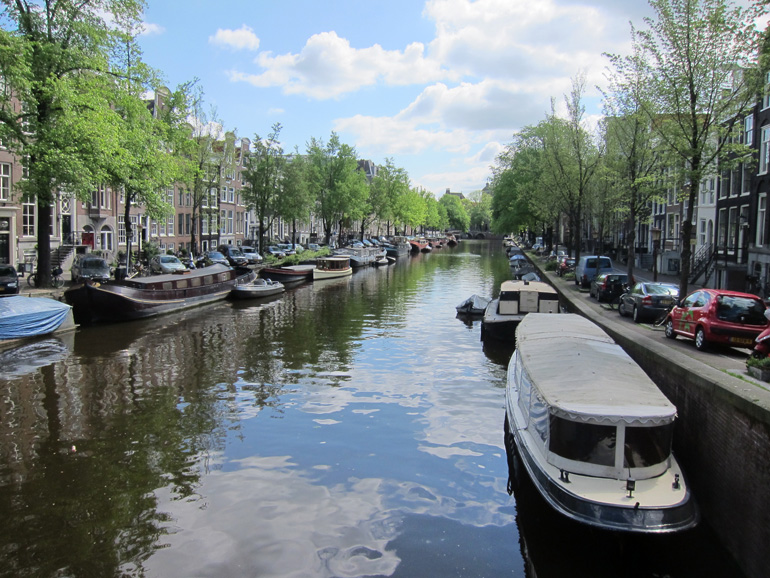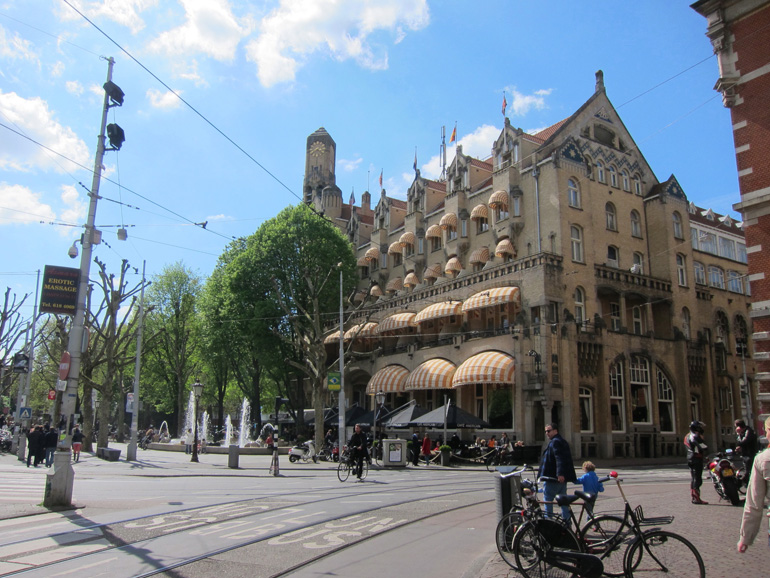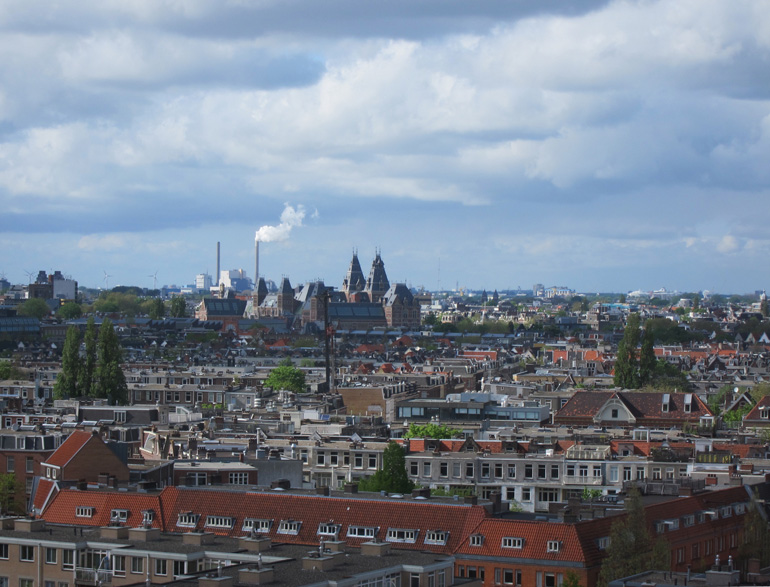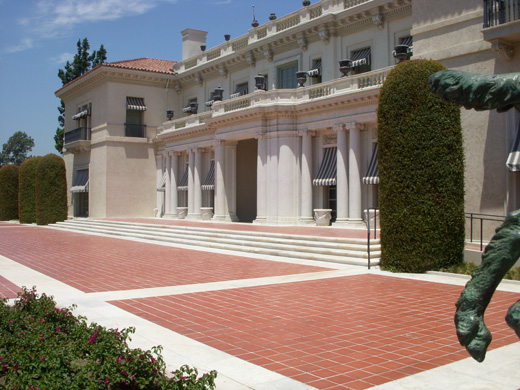Amsterdam/London:
Bloomsbury
18 May 2012
Friday, May 18th, 2012
The plan was to walk to the London Review Bookshop, have lunch, and walked back. We found the bookshop straightaway, although we nearly missed it at first. Outside the British Museum, I spotted a You Are Here map with a sigh of gratitude, for, having bluffed my way into the general vicinity of our destination, I now required finer details. It turned out, of course, that we had just passed Bury Place. The Bury Place entry was not good enough for me, however; I had to peer into the courtyard to find the side door, the one that figures in the film of Enduring Love. The fiction shelves are arrayed about that rear part of the shop, and within two minutes I had found two prizes: Alan Hollinghurst’s second novel, The Folding Star, which was what I’d had my heart set on finding; and a miracle, Joseph O’Neill’s second novel, The Breezes, which I’d all but given up on finding. All but given up on finding, that is, back when Netherland came out, four years ago.
Kathleen, on the other hand, demonstrated that it has been a long time since her last browse through a real bookshop. She’d still be there now, if I hadn’t pried her loose.
“Virginia Woolf lived here?” Kathleen queried in Tavistock Square. “But I thought that Bloomsbury was a slum.” It’s not hard to imagine where Kathleen got that idea. When Jessica Mitford moved to Rotherhithe with her husband, Esmond Romilly, her family thought that she was living in a slum, just as the Stephens girls’ relations must have thought of the orphans absconding eastward to Tavistock Square for lives both unmarried and unchaperoned. Kathleen was brought up to think the same sort of thing — which is more or less why she remains unfamiliar with the Upper West Side. On several occasions, she has stayed at fetching inns in the City, cosy hermit crabs in the husks of eighteenth-century buildings. And of course her parents lived in Belgravia during her father’s assignments to the British operation of his firm. But of London north of Oxford Street she knows only the Wallace Collection. Or did, until yesterday.
The You Are Here map in front of the British Museum was posted eccentrically, with west at the top and east at the bottom; it gave me quite a turn, I don’t mind telling you. Priding myself on my sense of orientation as I do, I was shocked and humiliated by the possibility that I had been walking along, ninety degrees off, for half an hour.
You’ll be wondering where my A-Z was. It would have been in my shoulder bag, of course, if it hadn’t been for Google Maps. Why pack a heavy book, I thought, when I can buy one when I’m there. I could rely on the Internet to give me an idea before setting out. Oh! Maybe you’ll be wondering where my phone was. I haven’t actually tried to use my phone. It has been turned off almost the entire time that we’ve been in Europe. I’m not sure that it works over here, but I’m not much tempted to find out one way or the other. I seem to have fallen into an uncanny valley in which small devices that do lots of amazing things are actually, essentially, and primarily tiresome.
***
The word “tiresome” fairly springs to my fingers, although not much else does. I’m tired. It’s tiring not to be at home. I feel as though we’ve been gone for months. Kathleen is not really feeling well (she has a sore throat, among other ailments), and although we went down to breakfast this morning I’m not sure that the rest of the day will bring her any further adventures. I myself should like to go to Chester Terrace, along Regent’s Park, where there’s an architectural folly that the American printmaker Joseph Pennell sketched a century or so ago; the print has long been one of our great treasures for more than twenty years. But how to get there? A taxi would be easiest, but I’m still trembling from the the cost of our ride in from Heathrow. The Tube is just beyond me, at least as a solitary traveler; with my immobile back downfixed head, I’m reluctant to try to find my way through Underground tunnels. (I knew my way around New York’s subways long before the ankylosing spondylitis set in.) As for walking, it’s not very far, not much farther, if farther, than Bury Place. But the Euston Road is no quaint promenade. And as if by perverse design, there are no quiet, adjacent parallels, either to the north or to the south.
In the event, we did not have lunch until we got back to the hotel. Nothing looked particularly inviting, and it was late (after three) to be looking for a meal. I was amazed to find that I could be out and about for so long without the need for a pit stop. I don’t count on the same good fortune two days’ running.
***
I didn’t count on it, but I had it anyway, a second successful outing. I went to Chester Terrace and took my photographs, caught a cab and asked to be taken to the British Museum, hard by Bury Place, paid another visit to the London Review Bookshop (to buy tote bags), and walked home through Brunswick Square. It was almost all very agreeable. There was a spell of disheartenment, when I wondered how far along the perimeter of Regent’s Park, in actual steps, I was going to have to go before coming upon the arches that interested me. But I found them sooner than I thought I would, and, after that, it was all a breeze.
Tomorrow, we fly back to New York, leaving in the late afternoon and arriving in the middle of the evening. There will be no posting here. If the weather isn’t terrible, I’d like us to go out for lunch — I spied lots of nice places today, simply by taking a turn at the Russell Hotel, to see if Alan Hollinghurst’s description of the back of the “Queensberry Hotel,” in The Swimming Pool Library, was a fit (it was, a perfect fit). There will be packing. And then there will come the moment when I have to pay for another 24 hours of Internet connection. At that point, the computer will have been shut down and stowed. Granted a safe voyage home, I’ll be back on Monday.

